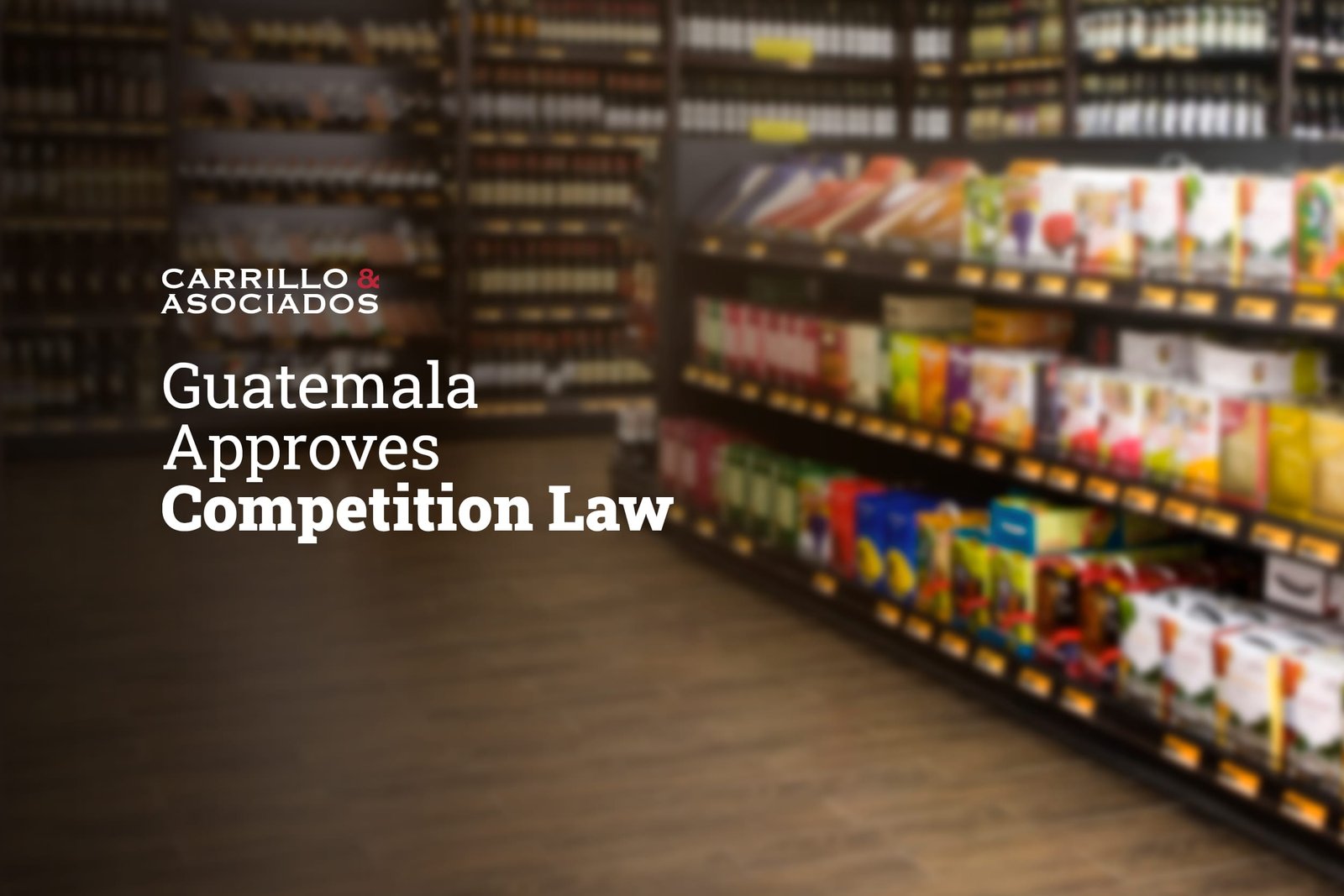
On November 20, 2024, the Guatemalan Congress approved Decree 32-2024, also known as Competition Law. This legislation aims to "promote and defend competition in order to strengthen economic efficiency and the welfare of national consumers”. In addition, it seeks to "prevent, investigate, combat, prosecute and punish anti-competitive practices and other restrictions on the efficient functioning of markets for the benefit of national consumers".
The Law has a broad scope and applies to all economic agents operating in the country, whether they are individuals or legal entities, private or public, profit or non-profit, domestic or foreign. It is important to note that in the case of economic agents that are subject to their own regulations and to the supervision and control of a specific authority, the provisions of this Law are applied in a supplementary manner, giving precedence to the special legislation.
If approved by the President, this Law shall be implemented gradually. The general provisions, as well as those related to the promotion of competition and the establishment of the Competition Authority, will be applicable as of January 1, 2025. However, the specific provisions regulating economic concentrations, administrative procedures, infringements and sanctions, as well as the statute of limitations, will enter into force two years after their publication in the Official Gazette.
Among the key aspects of this law are the defense of free competition, the regulation of economic concentrations and the creation of the Superintendence of Competition. Below you will find more information on each of these aspects.
1. Defense of Free Competition
The free competition defense focuses on prohibiting practices that limit the ability of markets to function efficiently. The Law prohibits absolute practices, such as price fixing, market sharing, and output limitation. On the other hand, the Law also sanctions relative practices, such as the actions of actors in a dominant position that restrict access to the market, impose discriminatory conditions, or hinder the entry of new competitors. However, the Law allows for the justification of these practices if it can be shown that they generate benefits that outweigh their negative effects, such as improvements in the quality of products or services, cost reductions or advances in innovation.
An innovative aspect of the Law is the inclusion of specific exceptions to competition restrictions aimed at promoting economic development. For example, cooperation between economic agents is allowed to promote scientific and technological research, to guarantee investments in strategic projects, to promote banking and the use of digital means of payment, or to protect national trade from illegal activities such as contraband or piracy.
2. Economic Concentrations
Another fundamental element of the Law is the regulation of economic concentrations. This type of operation, which involves the integration of competing economic agents under common control or the creation of a new agent, must be authorized by the Superintendence of Competition. The Superintendency carries out an evaluation that considers the relevant market, the impact on competitors and consumers, and the possible efficiency gains. If risks are identified, the Superintendency may refuse approval or impose conditions and require corrective measures to protect free competition.
3. Establishment of the Superintendence of Competition
To ensure the proper implementation of these provisions, the Law provides for the creation of the Superintendency of Competition, an autonomous and decentralized body with its own legal personality, in charge of supervising, investigating and sanctioning anti-competitive practices in the country. This agency will have jurisdiction over the entire national territory and will operate with technical and administrative independence. It will be composed of a Board of Directors, which will be the highest decision-making authority, responsible for resolving cases, imposing sanctions and authorizing economic concentrations, and a Superintendent, who will be responsible for the day-to-day management of the body and its legal representation.
4. Administrative and Judicial Proceedings
The law establishes an administrative procedure for investigating and sanctioning anticompetitive practices. Investigations may be initiated following a complaint, at the request of an interested party or ex officio, by the Superintendency. After a preliminary investigation, if there is sufficient evidence, the case is submitted to the Board of Directors for resolution. Decisions taken by the Board of Directors may be challenged by means of administrative appeals or judicial proceedings in the field of economic coercion, thus guaranteeing the right of defense of the parties involved.
5. Infringements, Sanctions and Measures
Finally, Decree 32-2024 establishes a comprehensive system of violations and sanctions. Violations range from absolute and relative anticompetitive practices to the execution of unauthorized economic concentrations and refusal to cooperate with the Superintendency. Penalties are severe, with fines that can reach up to 200,000 non-agricultural minimum daily wages for absolute practices and 100,000 minimum wages for relative practices[1]. Likewise, corrective measures may include the cessation of anticompetitive practices, or, in serious cases, the partial or total deconcentrating of operations considered irregular.
At Carrillo & Asociados, we understand the challenges that this new legislation presents. Our specialized team is ready to assist you in complying with the law and protecting your business interests.
Please do not hesitate to contact us for further information or inquiries.


[1] The minimum non-agricultural daily wage in effect in 2024 for Economic District 1 (Department of Guatemala) applicable to administrative sanctions is Q110.97, so the maximum fines would be approximately Q22,194,000.00 for absolute violations and Q11,097,000.00 for relative violations.